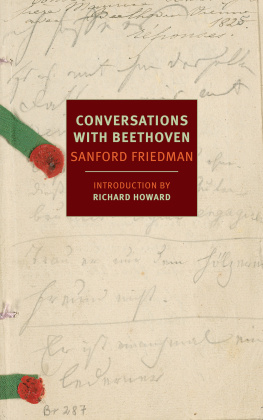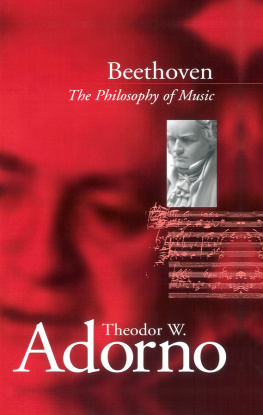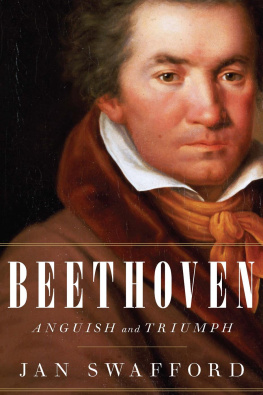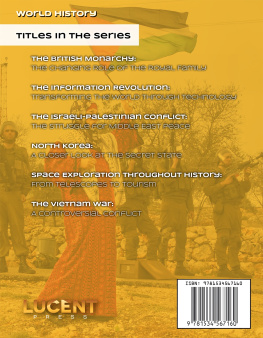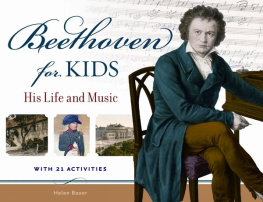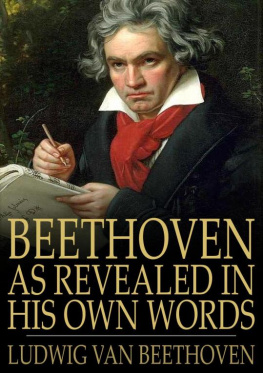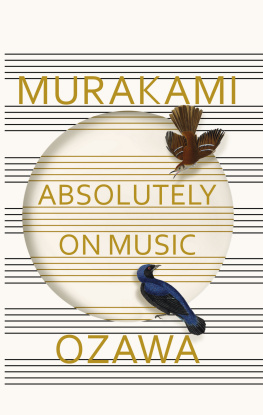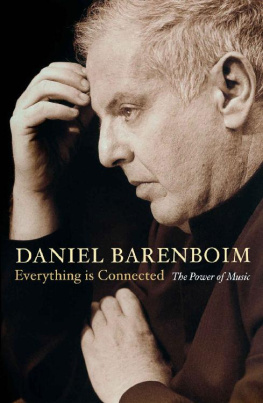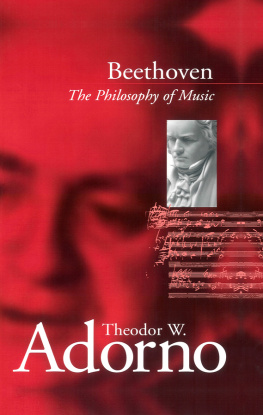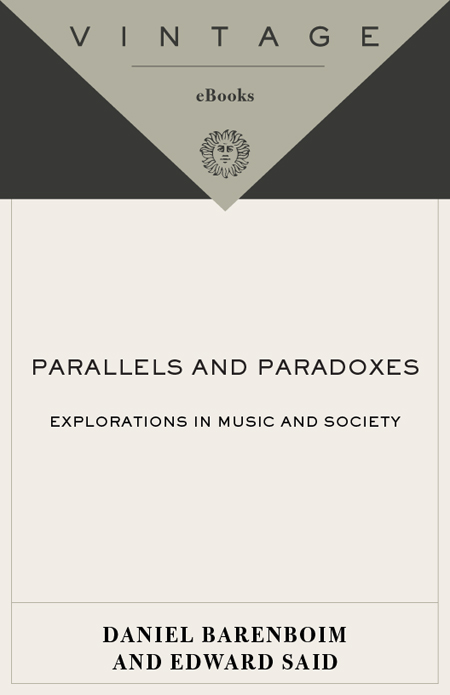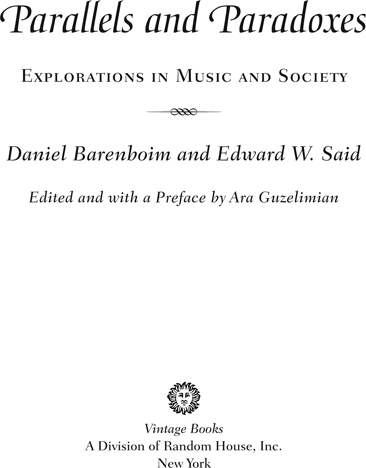Daniel Barenboim and Edward W. Said
Parallels and Paradoxes
Daniel Barenboim is Music Director of the Chicago Symphony Orchestra and General Music Director of the Deutsche Staatsoper Berlin. He gave his first public performance as a pianist at the age of seven. He celebrated the fiftieth anniversary of that milestone in the year 2000 with a series of concerts throughout the world, culminating in a complete cycle of Beethoven piano concertos and symphonies at Carnegie Hall in New York City. He has been associated with the Bayreuth Festival since 1981.
Edward W. Said was the author of more than twenty books, including Orientalism, which was nominated for the National Book Critics Circle Award, Culture and Imperialism, Representations of the Intellectual; The End of the Peace Process; Power, Politics, and Culture; and Out of Place: A Memoir. His books have been published in thirty-six languages. Professor Said died in September 2003.
About the Editor
Ara Guzelimian is Senior Director and Artistic Advisor at Carnegie Hall. He was previously Artistic Administrator of the Los Angeles Philharmonic and the Aspen Music Festival and School, as well as Artistic Director of the Ojai Festival in California. Active as a critic, writer, and radio producer, he has given lectures for the Cleveland Orchestra, at the Salzburg Festival, and at the Jerusalem Music Center. He is the host of the celebrated Carnegie Hall Talks, a series of conversations with great musicians.
ALSO BY DANIEL BARENBOIM
A Life in Music
ALSO BY EDWARD W. SAID
Joseph Conrad and the Fiction of Autobiography
Beginnings: Intention and Method
Orientalism
The Question of Palestine
Covering Islam
Literature and Society (editor)
The World, the Text, and the Critic
After the Last Sky (with Jean Mohr)
Blaming the Victims (editor)
Musical Elaborations
Culture and Imperialism
The Politics of Dispossession
Representations of the Intellectual
Peace and Its Discontents
The Pen and the Sword
Entre guerre et paix
Henry James: Complete Stories, 18841891 (editor)
Out of Place: A Memoir
The End of the Peace Process
The Edward Said Reader
Reflections on Exile and Other Essays
Power, Politics, and Culture: Interviews with Edward W. Said
Contents
A Question of Place Rehearsal Styles The Weimar Workshop National Identity and Interpretation Globalism and Partition An Audition with Wilhelm Furtwngler
The Singularity of Performance Ephemerality of Sound The Score and Literary Text as Absolute The Psychology of Tonality Composers, Writers, and Society Art and Censorship Detail Is All Timing and the Oslo Accord
Chapter Three
Art, Politics, and Institutions On Mentors A Style of Conducting The Importance of Extremes The Art of Transition Space and Tone
Flexibility of Tempo The Color and Weight of Sound The Open Pit and Bayreuth Adorno and Wagner National Socialism and Wagner Manipulation and Yielding The Question of a German Art
What Is Authenticity Now Interpretation in Text and Music Past and Contemporary Masters A Musically Literate Listener Modernism and Inaccessibility
Organic Beethoven Symphonies and Concertos Music of the Social Realm Long Crescendo versus Subito Piano Music and the Line of Most Resistance
Preface
by Ara Guzelimian
You must meet my friend Edward Said!
Daniel Barenboim was most emphatic about that. He and I had just had the first substantial conversation of our acquaintance, working on various aspects of a Carnegie Hall Perspectives project that explored his multifaceted musical interests and collaborations. With his boundless curiosity about everything around him, he began to pepper me with questions on my personal history. The moment he discovered my own Middle Eastern origins, he insisted on introducing me immediately to Edward Said.
The friendship between Edward Said and Daniel Barenboim dates back a decade earlier to a chance meeting in a London hotel lobby in the early 1990s and has blossomed into an extraordinary collaboration. A passion for music and ideas is surely the binding force, but there is also the powerful underlying pull of parallel personal geographies. Both men come from a complex overlapping of cultures.
Edward Said was born in Jerusalem into a Palestinian family, but grew up largely in Cairo, once removed already from his origins. As a member of a rather anglicized Christian Arab family living in a predominantly Muslim society he was arguably displaced once more. And he was displaced yet again to the United States where, as a teenager, he attended boarding school. Even his fathers history is geographically complex. Prior to Edwards birth, Wadie Said had lived for a time in the United States, had attained American citizenship, and had even fought in the United States Army before returning to Palestine and Egypt. That peripatetic nature is readily found in many Middle Eastern family histories.
Daniel Barenboims background is just as complex. He was born into a Russian Jewish family that immigrated during his grandparents generation to Buenos Aires, where there was a thriving Jewish population, the third largest of any city in the world at the time. He subsequently immigrated with his parents to the newly created state of Israel, and his homes since that time have included London, Paris, Jerusalem, Chicago, and Berlin.
In each case, music was a formative and defining passion, fueled by recordings and the surprisingly rich musical life to be found in Cairo and Buenos Aires in the years following World War II. When Daniel Barenboim drew me into their friendship, it was partly in immediate recognition of striking parallels in my own background. I was born into an Armenian family in Cairo and many of my earliest memories are musical onesmy brother playing Bach Inventions for his piano lessons or the entire family going to a concert at the original Cairo Opera House (for which Verdi wrote Aida), where I remember seeing an ornate white piano reputed to have belonged to King Farouk. My parents attended some of the same memorable concerts and operas as the teenage Edward Said and, in fact, my mother remembers well the stationery store owned by Edwards father.
Edward Said is now best known as an extraordinarily influential and innovative intellectual force, an astute commentator on literature and culture, on cultures relationship to society, particularly in examining questions of Orientalism, a field of studies which he has pioneered. He is also a most forceful and impassioned commentator on the endlessly complex conflicts in the Middle East. But music still remains essential in his intellectual and personal life. He has written an enormous body of musical essays, and he remains an accomplished pianist.
As music director of both the Chicago Symphony Orchestra and the Deutsche Staatsoper in Berlin, Daniel Barenboim is a central figure in the musical world. He is one of the most recorded artists in history, with a nearly fifty-year span of recordings dating back to his earliest discs made when he was in his teens. He has taken numerous highly public and courageous stands, becoming an outspoken advocate for the performance of Wagners music in Israel, fighting the lingering presence of anti-Semitism in Germanys cultural politics, and becoming the first and most prominent Israeli musician ever to perform in the Palestinian West Bank (an invitation organized, not surprisingly, by Edward Said).


